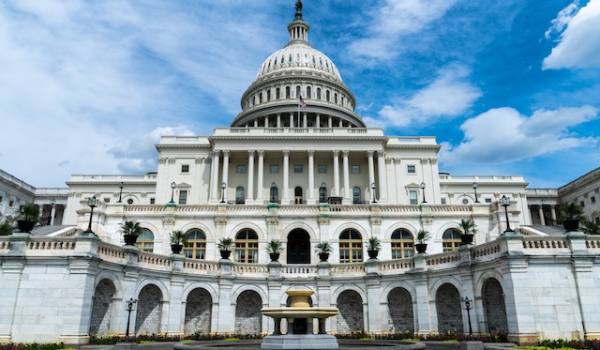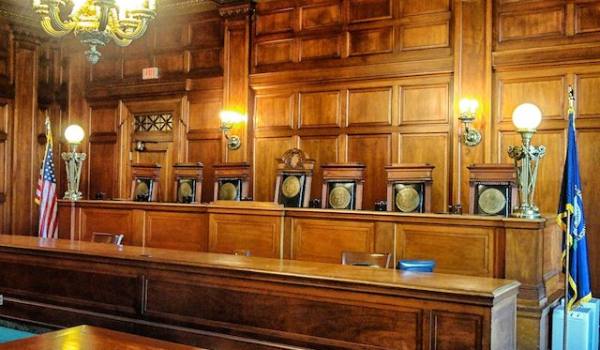U.S. Law: Rule of Law
The United States of America is governed by a system intended to ensure order and to protect citizens through laws and processes to enforce those laws. This is often referred to as “rule of law.” Laws in the United States follow the principles and rights outlined in the United States Constitution. All people in the United States, including refugees, are protected by these laws and are responsible for knowing and following them. Learn more below.

You may download this page as a PDF, watch, or listen to this information in a podcast. Downloadable PDFs, podcasts, and videos provide the same information as the webpage in different formats.
A Government of the People, by the People, for the People
Delivered during a speech at the turning point of the American Civil War in 1863, these words of President Abraham Lincoln epitomize a central democratic concept. In a democracy, the government is made up of elected officials who represent the people who voted for them. Through these elected representatives, and through the voting process and other civic activities, citizens are empowered to engage in the process of making the laws that will govern and protect them. Civic engagement is an important right and responsibility of all citizens.
How are Laws Made?
The United States has a federal government; each of the 50 states in the United States has a state government; and each municipality within each state has a local government. Federal laws are proposed and developed by the legislative branch of the federal government (Congress), enacted by the executive branch (the President and the Departments and agencies), and enforced by the judicial branch (the federal court system, including the Supreme Court). The Constitution establishes whether an area of law is the primary responsibility of the federal government or the state and local governments.
Using the same system of legislative, executive, and judicial branches of governance, state governments work to clarify and enforce laws created by the federal government, and make additional laws that govern their states. The states also designate local governments and empower them to make laws. Because federal, state, and local governments all make laws, laws can vary from state to state and even from one municipality to another. This is important for refugees to understand since everyone is required to follow the state and local laws where they reside.
To Whom Do the Laws Apply?
No one is outside the law in the United States regardless of his or her social rank, financial status, or any other privilege. The same laws apply to all. Bribery to circumvent the law is illegal and even the attempt to bribe an official for special privileges or exceptions is a punishable offense.
Ignorance of a law does not generally grant exemption from the law. People who unknowingly break a law must face the consequences, even if they did not intend to break the law.
Right to Due Process
If a person does break a law, they have a right to due process. The right to due process is the right to be treated fairly through the use of specified legal procedures if accused of a crime. In the United States, the right to due process is provided in the Fifth Amendment of the United States Constitution, and additional fair trial guarantees are provided in the Sixth and Fourteenth Amendments.
The Fifth Amendment
The Fifth Amendment establishes the right of due process if a person is accused of a crime or if that person’s property interests are to be taken by the government. It prohibits a person being charged for the same crime twice. Additionally, it says a person cannot be compelled to be a witness against himself or herself in a criminal case, and that a person’s private property cannot be taken for public use without just compensation.
The Sixth Amendment
The Sixth Amendment says that a person accused of a crime has the right to a speedy and public trial, by an impartial jury, and access to legal counsel. A person also has the right to be informed of the charges against him or her. Additionally, it says that the accused has a right to confront the witnesses against them and provide witnesses in their defense.
The Fourteenth Amendment
The Fourteenth Amendment prohibits states from making or enforcing laws that violate most of the rights that are provided by the United States Constitution. The Fourteenth Amendment, however, does not mandate how states are to ensure these rights, including the right to due process. This means that laws to protect these rights and due process can differ from state to state.

Ready to test your knowledge?

Download the Settle In App
Get unlimited access to hundreds of lessons designed for all learners



Test your Knowledge
With short videos and interactive lessons, you can learn about a wide range of pre- and post-arrival resettlement topics like traveling to the U.S., housing, and looking for a job.







